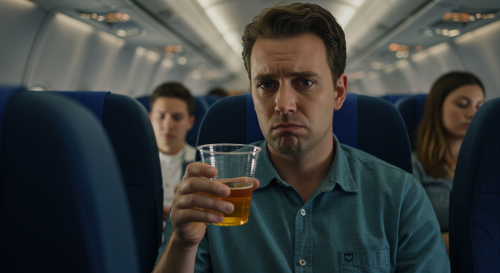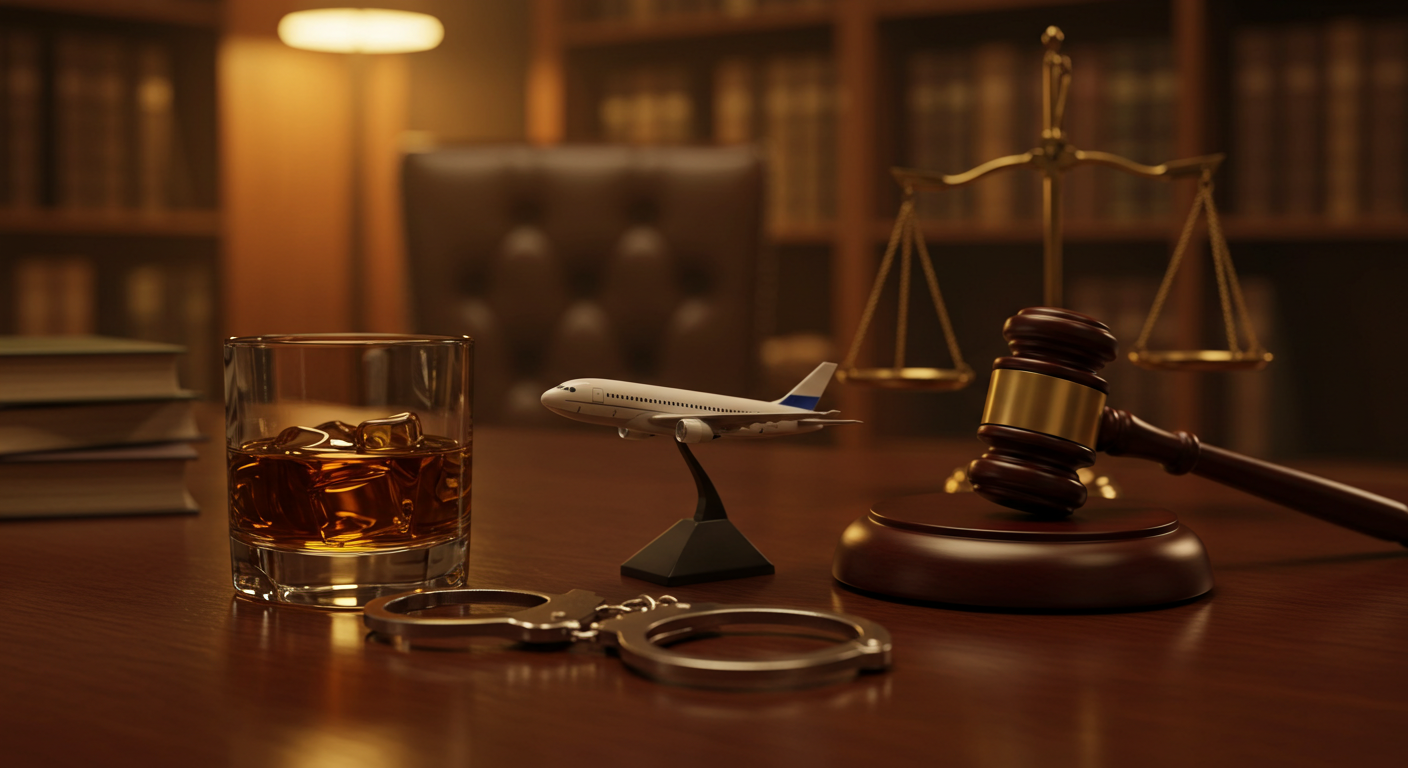Navigating the Legalities of Being Drunk on a Flight to UK

Navigating the Legalities of Being Drunk on a Flight to UK
Air travel to London, a nexus of global history and multicultural vibrancy, is subject to strict regulatory oversight to ensure the highest standards of passenger safety and decorum. Central to these regulations is the legal stance on passenger inebriation.
This guide provides a comprehensive analysis of the laws that govern alcohol consumption and behaviour related to intoxication on flights that culminate in the United Kingdom’s airspace, particularly in London.
The objective is to inform potential air travellers, airline personnel, and the general public about these regulations to uphold the safety and comfort that are paramount in air travel.
The Legal Framework

The United Kingdom’s legislative landscape concerning air travel is robust, with specific reference to passenger conduct and alcohol consumption. Enshrined within the Aviation Security Act 1982 and reinforced by various provisions overseen by the UK Civil Aviation Authority, these laws collectively form a stringent legal framework.
The rules apply universally to all aircraft destined for London, regardless of their international points of departure. The primary statute, the Air Navigation Order, explicitly prohibits any passenger from being drunk on an aircraft.
It further mandates that crew members prevent the boarding of intoxicated individuals, thereby maintaining control over the environment within the aircraft.
Scope of the Law
The legal provisions extend beyond the prohibition of drunkenness to encompass a broader spectrum of misconduct that may emanate from excessive alcohol consumption. This includes but is not limited to verbal and physical altercations, disobedience towards the crew, and interference with aircraft equipment.
Such behaviours present tangible threats to the safety and operational integrity of the flight. The laws ensure that any form of disruptive conduct, exacerbated by alcohol, is legally reprehensible, reflecting the seriousness with which the aviation sector treats in-flight safety.
Penalties for Non-Compliance

Penalties for failing to adhere to these laws are intentionally severe, serving as a deterrent to potential violators. Authorities are empowered to levy significant fines and, in situations where the offence is particularly grave, impose imprisonment.
These measures underscore the legal system’s zero-tolerance policy towards inebriation-related disturbances. Offenders may also face long-term repercussions, such as being barred from future flights with certain airlines, as carriers have the autonomy to maintain their own no-fly lists.
Importance of Compliance
Adherence to these legal statutes is integral not only from a legal standpoint but also as an element of communal etiquette and responsibility. When passengers abstain from excessive alcohol consumption, they contribute to a safe and pleasant flight experience for everyone aboard.
The communal aspect of travel is thus preserved, and the potential for alcohol-induced incidents, which can be both distressing and hazardous, is minimised. Airlines, for their part, are tasked with the responsible dispensation of alcohol, ensuring that their service protocols do not contribute to passenger inebriation.
Practical Advice for Travellers
Travellers bound for London by air are advised to exercise discretion and moderation when consuming alcoholic beverages before and during their journey.
Recognising personal alcohol tolerance levels is crucial, particularly in light of the amplified effects of alcohol at high altitudes, which can lead to unexpected levels of intoxication. Passengers should also familiarise themselves with the specific policies of the airline regarding alcohol consumption to ensure a seamless and enjoyable travel experience.
Conclusion: Navigating the Legalities of Being Drunk on a Flight to Uthe K

The laws governing inebriation on flights into London serve as a cornerstone for maintaining the esteemed standards of safety and comfort in UK aviation. As international travel burgeons, the imperatives of legal compliance and personal responsibility in this context cannot be overstated.
Notice: Informational Content Disclaimer
The content provided on this website, including articles, blog posts, and other informational materials, is intended for general informational purposes only. It is not intended as, and should not be considered, legal advice.
Visitors to this website should be aware that the information presented here is not a substitute for seeking legal advice from a qualified solicitor or legal professional. Each individual's legal situation is unique, and the information provided may not be applicable to specific circumstances.
If you require legal advice or have specific legal questions, we encourage you to contact us directly. Our experienced team of solicitors is here to assist you with your legal needs and provide tailored advice to address your concerns.
Please be advised that any communication through this website, including the use of contact forms or email, does not create a solicitor-client relationship. Confidential or time-sensitive information should not be sent through this website. To establish a solicitor-client relationship and discuss your legal matters in detail, please contact us for a consultation.
We strive to provide accurate and up-to-date information, but we make no representations or warranties regarding the accuracy, completeness, or suitability of the information contained on this website. We shall not be liable for any reliance placed on the information provided herein.
Thank you for visiting our website. We look forward to the opportunity to assist you with your legal needs.




